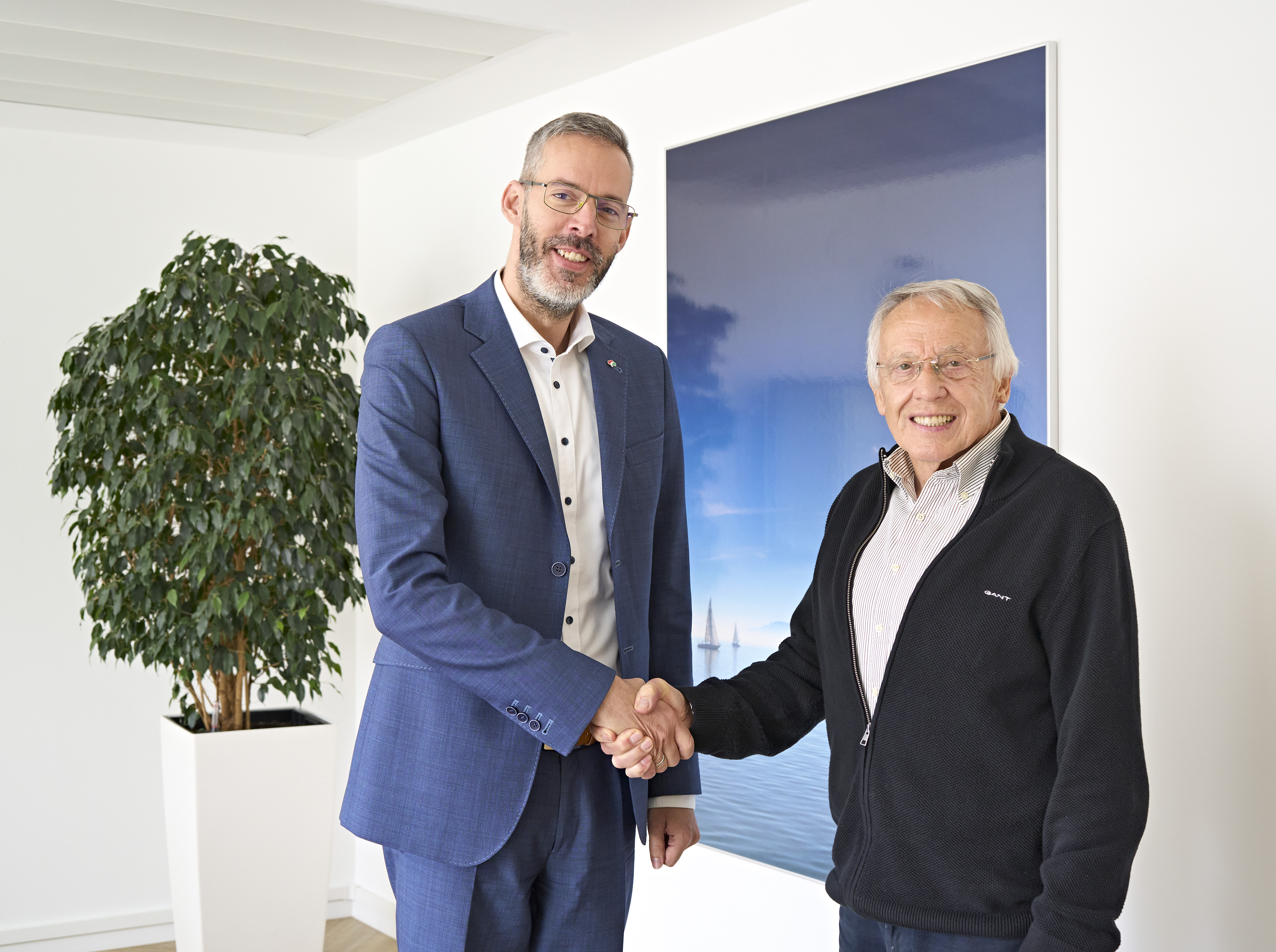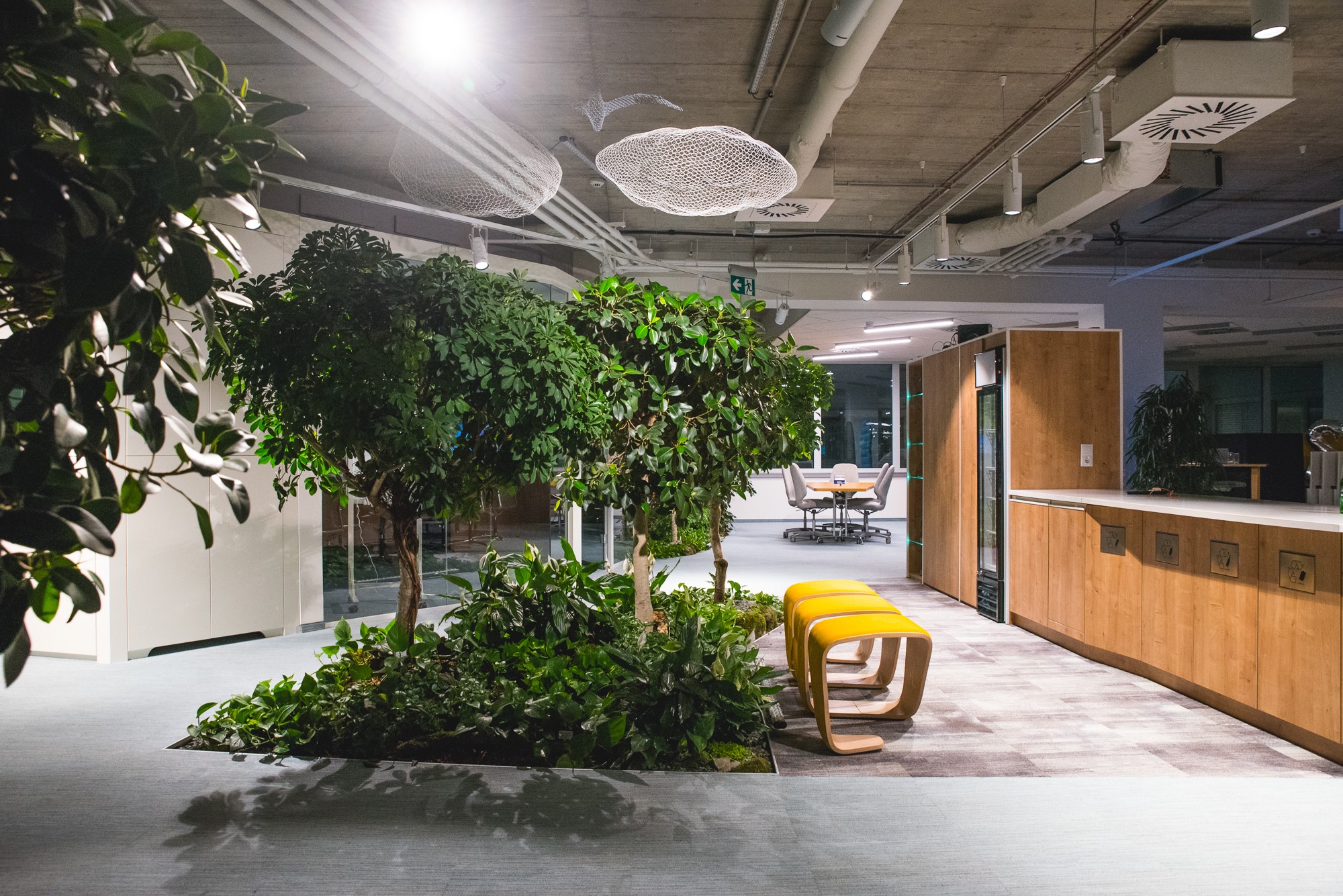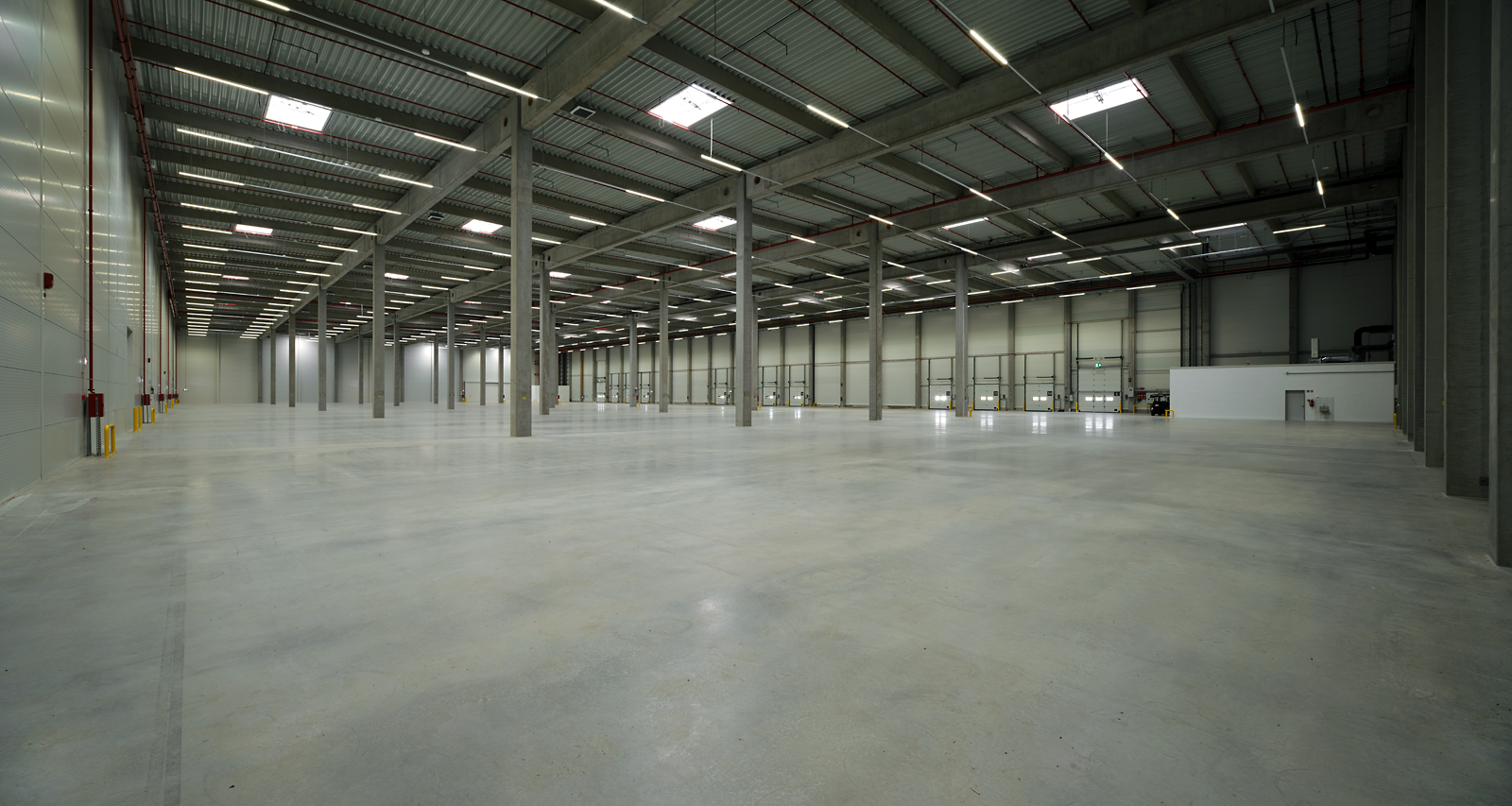Educating Through Better Sustainability, Quality and Technology
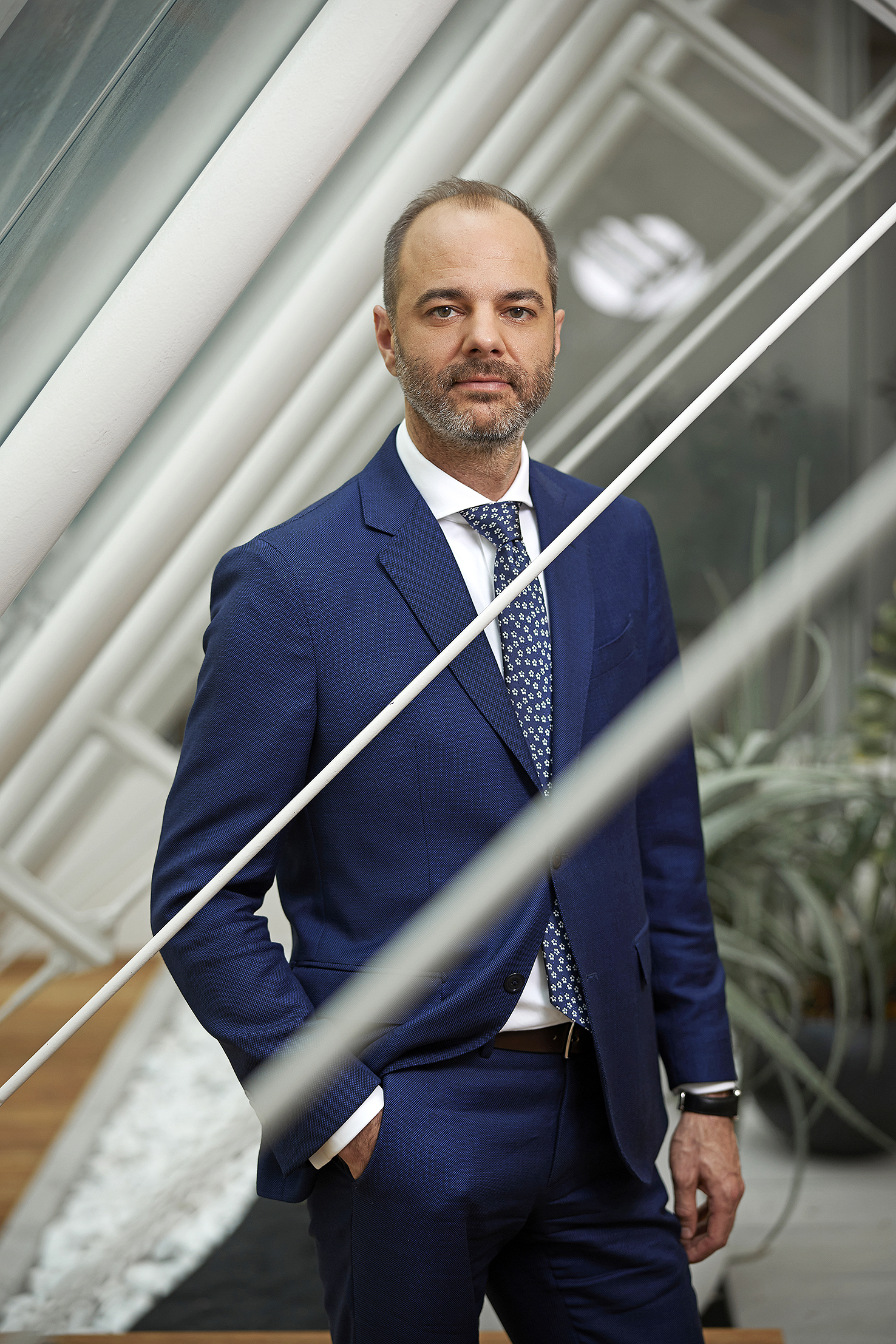
Tibor Massányi, managing partner of DVM group.
You might not expect education to be a theme that crops up often in conversation with a leading real estate developer, but it was a topic we returned to time and again in an exclusive 90-minute interview with Tibor Massányi, managing partner of DVM group: Education of employees, contractors, clients, even the general public.
Our conversation covered a lot of ground: the ongoing influences of COVID, the war in Ukraine and ESG requirements, the 2021 and 2022 business years, future plans, and the “insane” impact PropTech will have. Still, this recurring theme of education was the big takeaway.
To set some context for what follows, Massányi says 2021 was “a good year generally.” Turnover was down 10-15% on what had been planned, but profitability was on a par with 2020.
“If you look around at other sectors, if you said you would have 10% less turnover than planned, many companies would have signed up for that at the start of the year,” the managing partner says.
DVM group works across multiple sectors, from multi-year projects like the Szervita Square Building, to office fit-out. For the past six-to-eight years, it has also been heavily involved with the hospitality market, and as Massányi points out, for much of 2021, “that was completely closed.”
Because of the pandemic, several deals for hotel investments were put on hold. “It was a two-year pause rather than a cancellation. Last year we managed to renegotiate all these contracts and have already started those.”
This year has brought its own challenges. Already, Massányi says the management is telling colleagues, “This year will be harder than the last two years. [.…] But we are problem solvers, and we will solve these problems.” While DVM group has no direct exposure to Ukraine or Russia, both are well known as sources of raw materials in the construction business.
-OK.jpg)
Taking Their Toll
“In the construction sector [of the business], there are roughly 100 Ukrainians, mainly working during the structural works, and some of these workers went back home.” Inflation and rising energy prices are also taking their toll. Massányi uses tile manufacturing to illustrate the challenge.
“The biggest tiling manufacturers are in Italy and Spain. We usually work with those who deliver premium products because we need really good quality tiles in the office sector. The basic material of the tiles manufactured in Italy came from Ukraine. So, these manufacturers have a reduced assortment. So, they are not selling 2 cm thick tiles, but 1 cm, because it is double the raw material needed; that is out from the portfolio.”
A second problem is that the industrial ovens used for drying the tiles are usually gas-fired. Premium quality manufacturers are already asking for EUR 2 or 3 on top of the original price to cover rising gas costs. Secondary manufacturers, who produce less good quality tiles for the much more price-sensitive residential market, cannot pass on those sorts of cost hikes, and some have simply closed their factories for now.
Thirdly, there are the logistical costs of transporting the finished tiles from Italy or Spain to Hungary, not least of which is the price of diesel fuel. The same applies to basic raw materials like steel, wood and gypsum. All are becoming harder to source and more expensive to buy.
These problems began during COVID but have accelerated with the war, Massányi notes. Bombed Ukrainian factories, for example, will take time to bring back into operation.
“Even if the war stopped today, this issue would be with us for several months after, I think.” All of which begs the question: how do you plan for the future?
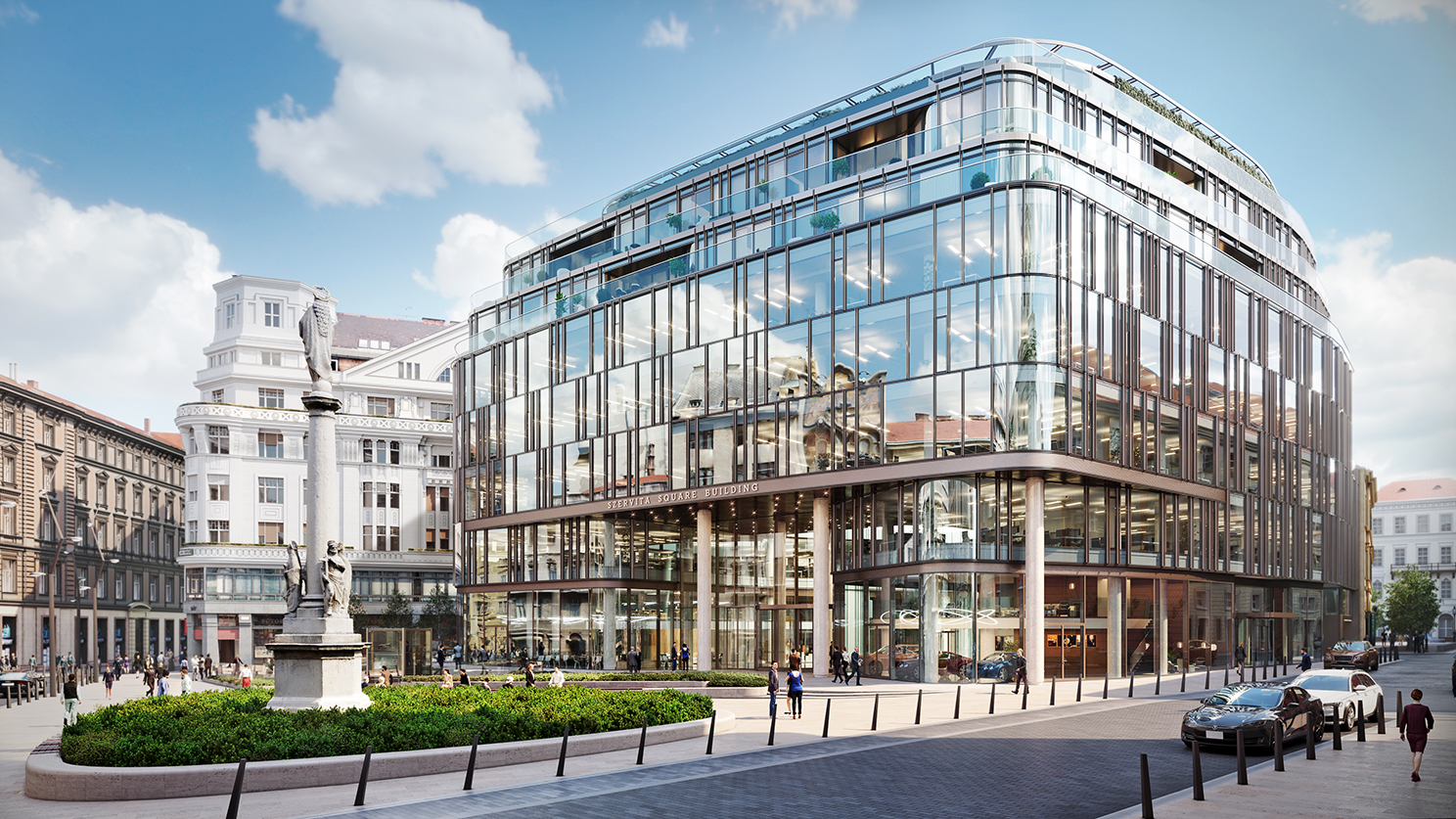
Cherry Picking
“From a contract point of view, we are absolutely fine for the next two or three years, and in a very healthy position in terms of the number and types of works. So, we have been trying to cherry-pick those projects we want to squeeze in now, whether from the reference point of view, maybe because of the complexity, or some long-term relationship with the client,” he explains.
“This year, we are full. Next year we are already at 50-60%. But because of the situation we have discussed, we have to sit down and renegotiate almost all the contracts, especially the big ones which are two or three years long. If the steel price is 30% higher, for example, we cannot build that in,” Massányi says.
“It is a mind game. We don’t have a problem with the mind games and the negotiations; we like to do these, but we would like to focus more on the engineering work, the architecture, rather than reread over the paragraphs of the contracts.”
Costs will be a significant part of those discussions, but in a world where everyone is suffering, it may well be that a client cannot afford a 15-20% increase. “If this is the case, then we have to find a solution, by reengineering the project, if necessary. [….] But that’s construction, that’s real estate. It always has its issues.”
And it is not as if the DVM group is entirely on its own and in the dark when it comes to finding new purchasing lines. It is part of the Studio Alliance, a 13-member international organization for premier league independent firms.
“I can call up the German partner, the English partner, the Polish partner, the Turkish partner and say, ‘We have a problem with this. Do you have a solution? What’s the price?’’’
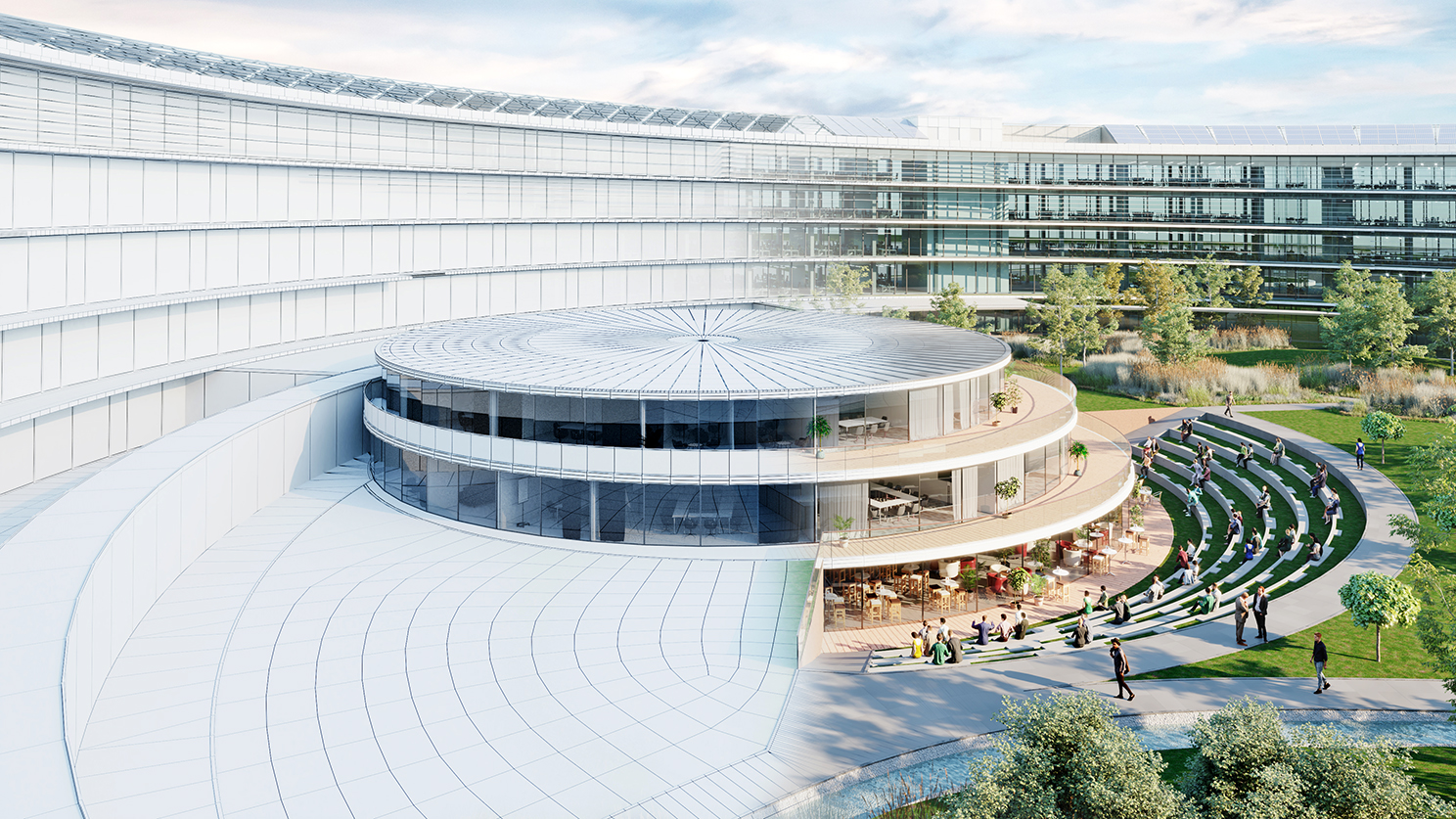
Naturally Optimistic
Massányi describes himself “as a glass half full guy” who is naturally optimistic, but does he have a worst-case scenario regarding the war and its impact? He does, but he doesn’t like to think about it too much.
“Never say never, but I don’t want to be faced with that. The only way to be worse, to be honest, is if the war doesn’t end this year or somehow goes across the borders. But the EU and the United States are very sensitively handling this; that’s what they would like to avoid completely,” he believes.
The war seems to have knocked COVID almost entirely from the news headlines. Massányi says it is still a threat, but he thinks both individuals and businesses have got to the stage where they believe they simply have to learn to live with it.
The other great impactor on real estate is ESG and sustainability issues. Massányi says the majority of what DVM does, some 70%, is in the office market. “That is, I believe, the most developed and forward thing sector of them all, to be very honest. In Hungary definitely, that’s the case, but I think in Europe too, because it’s dictated by the big corporates,” he says.
“What I learned, not from ESG but sustainability on the office market, is that it was the tenants who forced having a BREEAM, LEED or Well certificate. It did not come organically from the developers,” he says.
Today, an A-class office building cannot be developed in Budapest without green certification because it could not be fully let or sold on, Massányi argues. “That is a fact. It was not a fact 10 years ago.”
-OK.jpg)
Green Pioneer
The managing partner says DVM was one of the first in the Hungarian market to move into green certification some 14 years ago.
“It was an idea to build and plan in a sustainable way. And when we got our first certifications, everyone said, ‘Oh, it’s a very good marketing tool.’ It was not, but 10 years ago, it was seen as a marketing tool. Now, it is a ‘must-have,’” he says.
ESG is somewhat similar, he believes. It is more than a marketing tool, but he says he does not yet feel the commitment from some real estate players that they really want to do it. A change of mentality is needed, and a lot of learning.
“Commitment, and education, are what is important here. Educating everyone who is in this business. Not just the managers and designers, but the last foreman and labor worker on the site needs to understand why it is important to build sustainable projects,” he insists.
“I think it is very human not to look too far forward but to focus on the here and now, but this is not for us; it is for our children and our children’s children.” Does that mean firms like DVM have a role in educating the industry?
“Definitely, yes. I think it is part of our job, and this is where that commitment steps in,” he insists. Different sectors are also at different stages. He described the office market as “well educated,” for example.
“I have general problems with the residential market because of the quality. For me, the way of thinking is absolutely unacceptable because everything is just profit maximization. I do not see education from this [sustainability] point of view.”
Residential Quality
DVM’s design team already has some residential projects, and Massányi says the group is “very close” to a deal for its own project under the DVM Home brand. It won’t be a luxury development but, the director says, “will introduce what we believe residential quality should be in Hungary. Obviously, it is going to be sustainable.” This brings us back to education.
“Our design team has to push the clients to understand that they must build something in a sustainable way. It is our obligation. If they are not aware or do not care, we have to lobby. This is the commitment. You have to push them further and further to achieve bigger and bigger goals in terms of sustainability.”
On the actual construction, there is a need for better insulation, more sustainable sources of material, to find alternatives that are closer to the site and thus have a lower carbon footprint, and to explore means of cutting dust and noise pollution during the build.
“The government also has a role in educating, but also in helping to build more sustainably, with legislation, financial support. Everything starts from this point. If people understand the importance, you can change their mindset. Who has a wider bandwidth to reach people than the government? No one.”
Massányi is equally evangelical about the power of PropTech to transform the industry. He is involved with a competition to select PropTech startups and says the potential he has seen is “insane.” He was invited to be a jury member but admits he is not just there out of selfless interest.
“I am very much in it to understand the solutions, software, and technologies that could help the DVM team be more efficient and more precise. I feel we have to follow it and keep at the forefront because if you are not spending time with it, you cannot develop your technology, and then you will be in a very poor position on the market. It is education, again. Day by day, we have to develop our way of working, our knowledge.”
Technological Advances
There are many areas where PropTech can help. Modeling, for example, can simplify the mundane workload of DVM’s green credential assessors, not just making their output even more accurate, but enabling them to handle more projects in parallel. Two other departments can also benefit enormously from technological advances: architectural visualization and Discovery, which is workplace strategy and design.
The former is an artistic team using “crazy” technology similar to the movie industry, albeit on a smaller scale, Massányi says. The International Property Awards has already voted DVM’s team the best architectural CGI company internationally. “We like to deliver premium and only premium, which lets us step beyond the borders and work for huge companies and developers in the United States, in the Gulf area, in some parts of Asia.”
The aim is to help decision-makers who aren’t architects or designers “see” what an office will look like. “This is the magic that the visualization team artists are doing.”
The latter service, which now has a dedicated team, is used in the early stages of interior design and is one of the few positives to come out of the pandemic, as that is when its toolkits were created.
“We developed our way of working to serve our clients better,” Massányi explains, “to understand them more deeply and to be able to propose a much more tailored fit for them.”
This article was first published in the Budapest Business Journal print issue of May 6, 2022.
SUPPORT THE BUDAPEST BUSINESS JOURNAL
Producing journalism that is worthy of the name is a costly business. For 27 years, the publishers, editors and reporters of the Budapest Business Journal have striven to bring you business news that works, information that you can trust, that is factual, accurate and presented without fear or favor.
Newspaper organizations across the globe have struggled to find a business model that allows them to continue to excel, without compromising their ability to perform. Most recently, some have experimented with the idea of involving their most important stakeholders, their readers.
We would like to offer that same opportunity to our readers. We would like to invite you to help us deliver the quality business journalism you require. Hit our Support the BBJ button and you can choose the how much and how often you send us your contributions.




